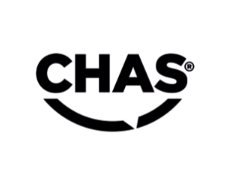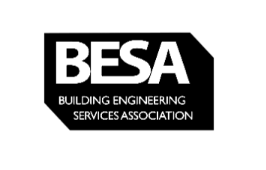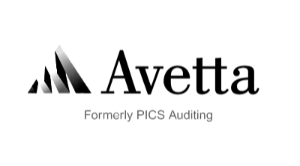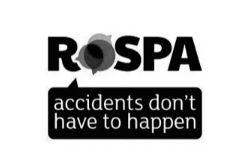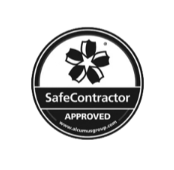phs Group has acquired Citron Hygiene UK find out more here
In the healthcare sector, the collective term ‘sharps’ is a common one, and refers to any device with sharp points or edges that can cause injury by puncturing or cutting the skin. These include:
- needles and anything attached to them e.g., syringes,
- blades, such as scalpels, razor blades and scissors
- broken glass items, such as vials
- lancets
- metal wire, pins, and staples.
But sharps aren’t restricted to healthcare environments alone. Schools, veterinary surgeries, tattoo studios, care homes, kitchens… and anywhere in which sharps may be used must consider sharps disposal as a critical aspect of their waste management. In fact, given their potential to carry and transmit bloodborne pathogens such as HIV, Hepatitis B, and Hepatitis C, the importance of safe disposal of sharps cannot be overstated.
It’s unsurprising then, that businesses and organisations are legally obligated to ensure the safe disposal of sharps wherever reasonably possible – as outlined in the Health and Safety (Sharp Instruments in Healthcare) Regulations 2013.
As the leading UK provider of innovative, sustainable waste management services, phs group are experts in handling sharps disposal. In this blog, we'll delve deeper into what sharps disposal entails, the various types of sharps bins available, and their specific uses.
Why is sharps disposal crucial?
- Public safety: Sharps can cause serious injury, particularly to children, vulnerable adults and those who are not properly trained in their use, if they are not disposed of appropriately. Injuries caused by sharps can also lead to serious infections.
- Protection for Healthcare Workers: Medical professionals are at the frontline, and improper disposal can expose them to sharps injuries, e.g., punctures or lacerations, which can be a source of various infections.
- Prevention of Disease Spread: Used sharps can be a reservoir for pathogens. Proper disposal ensures these pathogens don't find a new host.
- Environmental Safety: Sharps that end up in regular waste can harm sanitation workers and can also contaminate the environment.
Types of sharps containers and their uses
Whether you have a large quantity of sharps, or very few, the disposal of all sharps must be managed safely. This process begins with placing them in specialised containers, often termed "sharps bins." These containers are designed to be secure, lockable, and puncture-resistant, ensuring that the sharps inside are safely stored and don't pose a threat to anyone handling the bin. Here's a breakdown of the different types of sharps containers:
- Orange lidded sharps waste bin – for clinical Infectious waste. These containers are for the disposal of sharps and clinical waste in the orange waste stream, i.e., non-pharmaceutical clinical Infectious sharps waste. This means they are for storage and disposal of sharps that are not containing or contaminated with medicinal products or their residues. Orange bins are a good general-purpose sharps bin commonly used to dispose of sharps items used during operations and syringes used to take blood samples. They may also be found in tattoo parlours, beauty treatment practices and GP surgeries.
- Yellow lidded sharps waste bin – for clinical highly infectious waste. These containers are for the disposal of clinical waste in the yellow waste stream. This includes sharps contaminated with medicinal products and their residues.
- Purple lidded sharps waste bin – for cytotoxic and cytostatic waste. These containers are for the disposal of sharps and clinical waste in the purple waste stream, i.e., sharps contaminated with cytotoxic and cytostatic medicines which are toxic to cells – such as chemotherapy drugs.
Note – you may also notice blue-lidded waste bins in certain settings. These bins are not for the disposal of sharps. Blue-lidded bins are used for the storage of pharmaceutical waste and can be designed for either solid or liquid medicines disposal.
Best practices for sharps disposal
While having specialised containers is the first step, it's equally important to follow best practices when it comes to sharps disposal:
- Never Overfill: Sharps bins come with a fill line. It's crucial never to exceed this line to prevent accidental spillage or injury.
- Store at eye-level, but away from children: Sharps bins should be stored at eye level, so that they cannot be knocked over, but should always be placed in an area inaccessible to children.
- Replace Regularly: Even if the bin isn't full, if it's been in use for an extended period, it's a good practice to replace it.
- Follow Local Regulations: Sharps disposal regulations can vary based on locality. Always be aware of and adhere to local guidelines.
- Employ a sharps waste management service: Contracting your sharps waste disposal to an accredited expert can save your business time, resources and ensure you stay legally compliant. phs group can provide a complete waste solution with safety and compliance guaranteed thanks to our accredited staff. With comprehensive clinical waste services, phs group is a trusted supplier for your sharps waste disposal needs.
Not to put too fine a point on it…
Sharps disposal is an integral aspect of hygiene and safety for all healthcare settings as well as any businesses that use sharps. By understanding the different types of sharps containers and their specific uses and implementing best practice procedures, we can ensure that these potentially hazardous items are discarded safely, protecting both individuals and the environment.
Contact us today to find out more about how phs Group can support you to dispose of your sharps safely and efficiently.






























